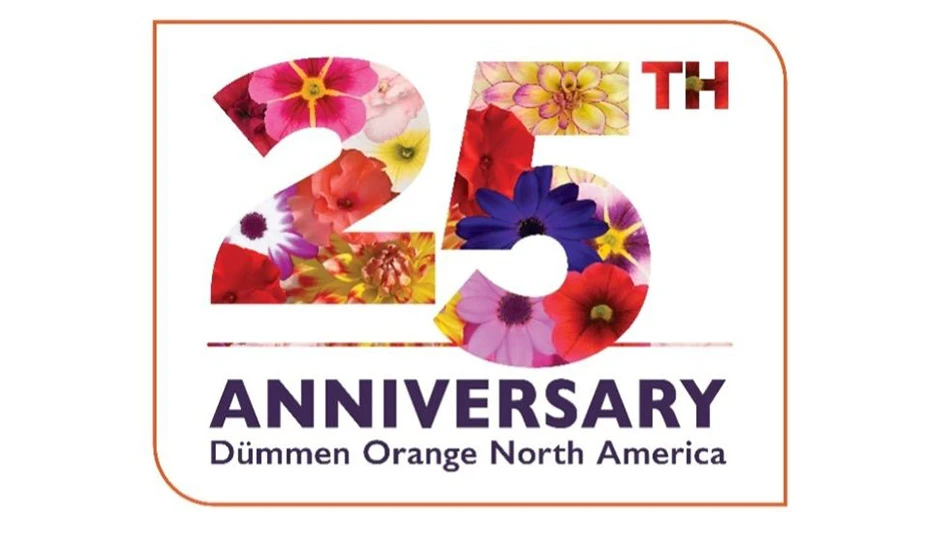
Adobe Stock #282530394

According to Bob Berbee, the president of the Leo Berbee Bulb Co. in Marysville, Ohio, the company has two main seasons: fall and spring.
“We have a fall season, which is all of the tulips and daffodils and all of that stuff,” he explains. “And then we have the spring stuff, which is bare root bulbs, daylilies, peonies and such.”
As the COVID-19 pandemic ramped up, Berbee says the business was somewhat caught off guard by growing demand. This year, as shipping delays have affected various industries, he says they were again somewhat caught off guard.“This fall, we had a delay of about three weeks,” Berbee says. “And we could just not get caught up from that first delay. This year was great, obviously. But we had semi-truck loads coming in from overseas and four were on schedule. But that first one was off schedule, and we could just not get caught up with the amount of orders and everything else, so we were just delayed from the first one."
Berbee says delays can happen and that occasionally navigating supply chain issues is just part of doing business. However, this fall’s issue was particularly troublesome because it came during what is usually the company’s slow season. Sales, he says, were “way heavier” than in recent years.
“We were blindsided,” he says, noting that all of their orders are packed in Marysville and then shipped out. “We could have used additional staff and I think that would have kind of alleviated us being delayed or always playing catch-up.”

Underlying causes
Berbee Bulb Co. (which also has a garden center in Marysville called Dutch Mill Greenhouse) does a mix of online and retail orders. While Ohio is one of the states that has remained largely open during the pandemic, Berbee says sales still shifted to online at a higher volume than they’d ever witnessed over an extended period of time.
“Our issues came from a lot more orders coming in and we are reaching a different kind of clientele with our wholesale,” Berbee says. “We are focusing a lot of our energy on cut flower growers right now and that seems to be extremely popular. We’ve got a really good grasp on that.”
Additionally, Berbee says that the company’s focus is on smaller growers and individual customers, as opposed to larger growers who service big-box stores. He says that while that’s key to how the business works, it adds another layer, since there can simply be more to keep track of.
“We don’t do any big-box stores or anything like or close to that,” Berbee says. “We just have a lot of smaller customers, which is a lot of detail to manage because everything comes in bulk and then we have to pack it for each customer. So, it’s a lot of hands on deck and very time consuming. We have customers that might order 100 of one variety of tulips and then another will want 10,000 and then there’s everything in-between. It just becomes very time consuming to do 200 or 300 orders in a given week.”
Figuring out how to adjust
Berbee is blunt in saying that they have not figured out how to navigate shipping issues yet.
“Honestly, we haven’t figured it out yet and I think we’re working very hard to get it figured out — especially with spring being two to three times busier than the fall. We had a minor problem getting caught up with what we expect is lower order numbers then we'll see [later on],” Berbee says.
That said, Berbee describes these issues as good problems to have. Like many other green industry businesses, sales are up for the company and have remained higher than previous years despite the pandemic moving into a later stage. For Berbee, it’s better to be this busy and have to figure out how to get caught up and how to get each order out on time than to not have enough orders or to simply not have enough demand to sell all of their inventory.
He adds that in previous years, they’ve never completely sold out of product. Now, they expect to sell every item in stock. Looking ahead to spring, he says they’ve already sold out of product.
“That’s just not normal and we have people placing orders for next fall,” he says. “Which is not common. People are pre-paying, too. This is all just uncharted territory for us.”
One change he says the company overall has made is implementing more regular communication and organization via weekly meetings. Before the surge in sales and shipping issues, Berbee says they had regular communication among the company’s leadership, which includes his sister, Marjolein Berbee-Dzmura, her husband David, and Berbee's wife Mattie. But with so much more happening right now, he says planned weekly check-ins have helped keep everyone on the same page.
“We’re doing weekly meetings and brainstorming sessions on what works and what doesn’t,” he says. “We have a growth problem, is what we have. Things have obviously changed from 40 years ago or 50 years ago, but it’s even changed immensely from last year. I wish we had an answer, but we just don’t have one — yet.”

Explore the January 2022 Issue
Check out more from this issue and find your next story to read.
Latest from Greenhouse Management
- Flexible fungicides
- Super Charged Moon Juice from Moon Valley Nurseries now available nationally
- 2025 Proven Winners Horticulture Scholarship applications now open
- How to improve inventory and shipping management in the greenhouse
- Leading Women of Horticulture: Anna Ball, Ball Hort, and Terri McEnaney, Bailey Nurseries
- GM CEA HERB Part 2: A guide to increasing the sowing density of culinary herbs
- GM CEA HERB Part 1: Best practices for producing culinary herbs in controlled environments
- USDA fires experts on invasive pests, including Asian citrus psyllid, chilli thrips






